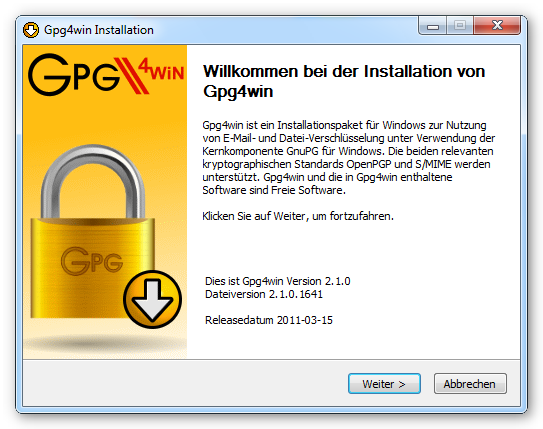Security
OpenPGP & S/MIME
Gpg4win supports both: OpenPGP and S/MIME (X.509)
The configuration of X.509 root certificates is made simple by Gpg4win. Now, also inexperienced users can start using S/MIME out-of-the-box. Security aware system administrators will read the step by step instructions and define a systems-wide list of trusted X.509 root certificates.
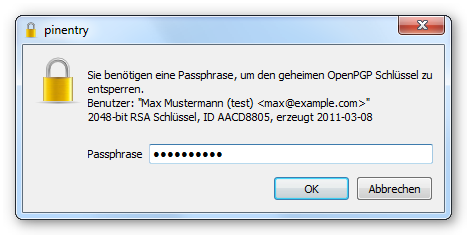
High algorithmic strength of GnuPG
Gpg4win is the official GnuPG distribution for Windows and provides the high cryptographic standards of the GNU Privacy Guard. GnuPG follows the recommendations regarding algorithms and key length of the German Federal Office for Information Security (BSI).
To create OpenPGP and X.509 certificates Gpg4win uses a key length of 2048bit by default. The default algorithm for signing and encrypting is RSA.
SmartCard
Gpg4win supports using SmartCards for OpenPGP and S/MIME. You can find technical details on the GnuPG page.

Files and Folders
Signing and encrypting
Sign single files or complete folders directly from the Windows Explorer with GpgEX or Kleopatra. You can select multiple files and folders to sign and encrypt them recursively into a gpgtar archive.
Checksums
Create and verify checksums of files - also directly from the Windows Explorer or Kleopatra. Gpg4win can create a unique checksum for each selected file, with which the integrity of these files can be verified any time later. Both, creation and verification of these crypotraphic checksums (hashes) are carried out in analogous manner in the GUI. Gpg4win supports the hash algorithms SHA-1, SHA-256 and MD5.
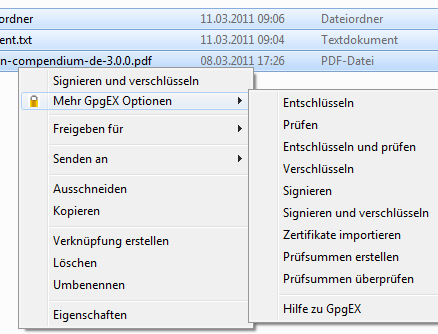
Signing and encrypting
The provided Outlook plugin GpgOL allows to sign and encrypt emails directly in Microsoft Outlook (2003 and 2007). Attachments can be encrypted as well, in one go with the email body. Verifying signatures and decrypting messages is done directly in Outlook, too.
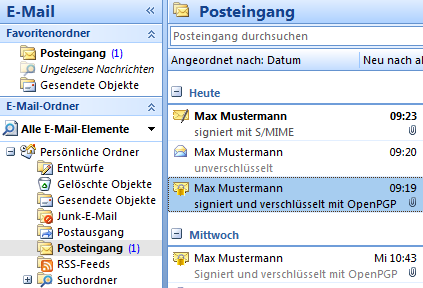
User-friendly Certificate Seletion
The selection of the right email certificate is a function of Kleopatra - based on the corresponding email address. Kleopatra shows the automated preselection of certificates in the following dialog.
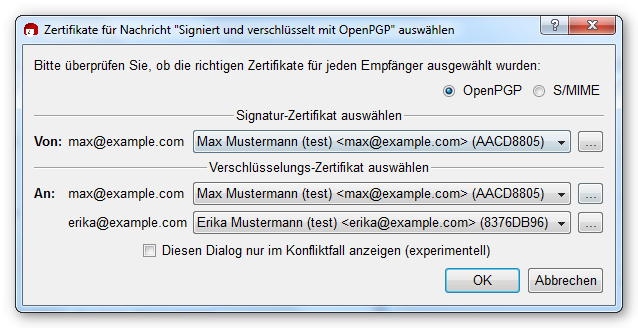
For "power users" Gpg4win provides the option to show this confirmation dialog only in case of conflict. Thereby you do not need to confirm certificates which do accord uniquely. You work more quickly - without reducing security.
Installation and Compendium
Installer
The Gpg4win Installer enables you to install Gpg4win in a very simple and secure manner. A step-by-step installation guide us provided as part of the Gpg4win Compendium.
Gpg4win Compendium
The Gpg4win Compendium provides an illustrative documentation for getting started in the field of applied cryptography and using Gpg4win. It is available in German and English.
Certificate Management with Kleopatra
Manage certificates securely and comfortably
Kleopatra is the preferred certificate manager in Gpg4win. Kleopatra allows to manage all your certificates (OpenPGP and S/MIME) in one tool.
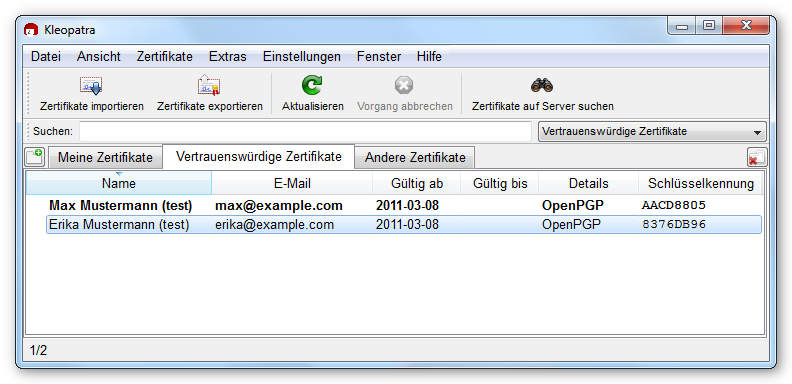
Certificate Server
Kleopatra provides a simple im- and export of certificates from and to (OpenPGP and X.509) certificate servers (also called key servers).
Certify OpenPGP Certificates
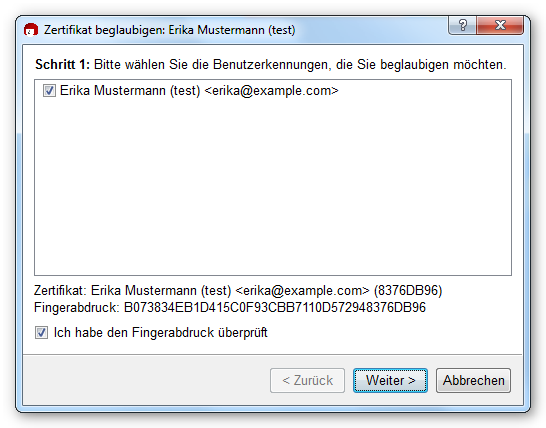
Use Kleopatra to certify (sign) a public OpenPGP certificate of a trusted person. Thereby these certificates are marked as "trusted certificates".
Other things to know
Free Software
Gpg4win is Free Software and consists of several independently developed packages which have different Free Software licenses. The majority (as Gpg4win) is licensed under GNU General Public License (GNU GPL). The usage of Gpg4win is for free.
System Requirements
Gpg4win supports Windows 7. All screenshots are made with Windows 7. Furthermore Windows XP and Vista are supported.
GpgOL requires Microsoft Outlook 2003 or 2007. Outlook 2010 is not supported.
Details are listed in the section System Requirements of Gpg4win's "About"-webpage.
Internationalisation
All dialogs of Gpg4win are available in English and German language. The Gpg4win Installer provides some additional languages.
